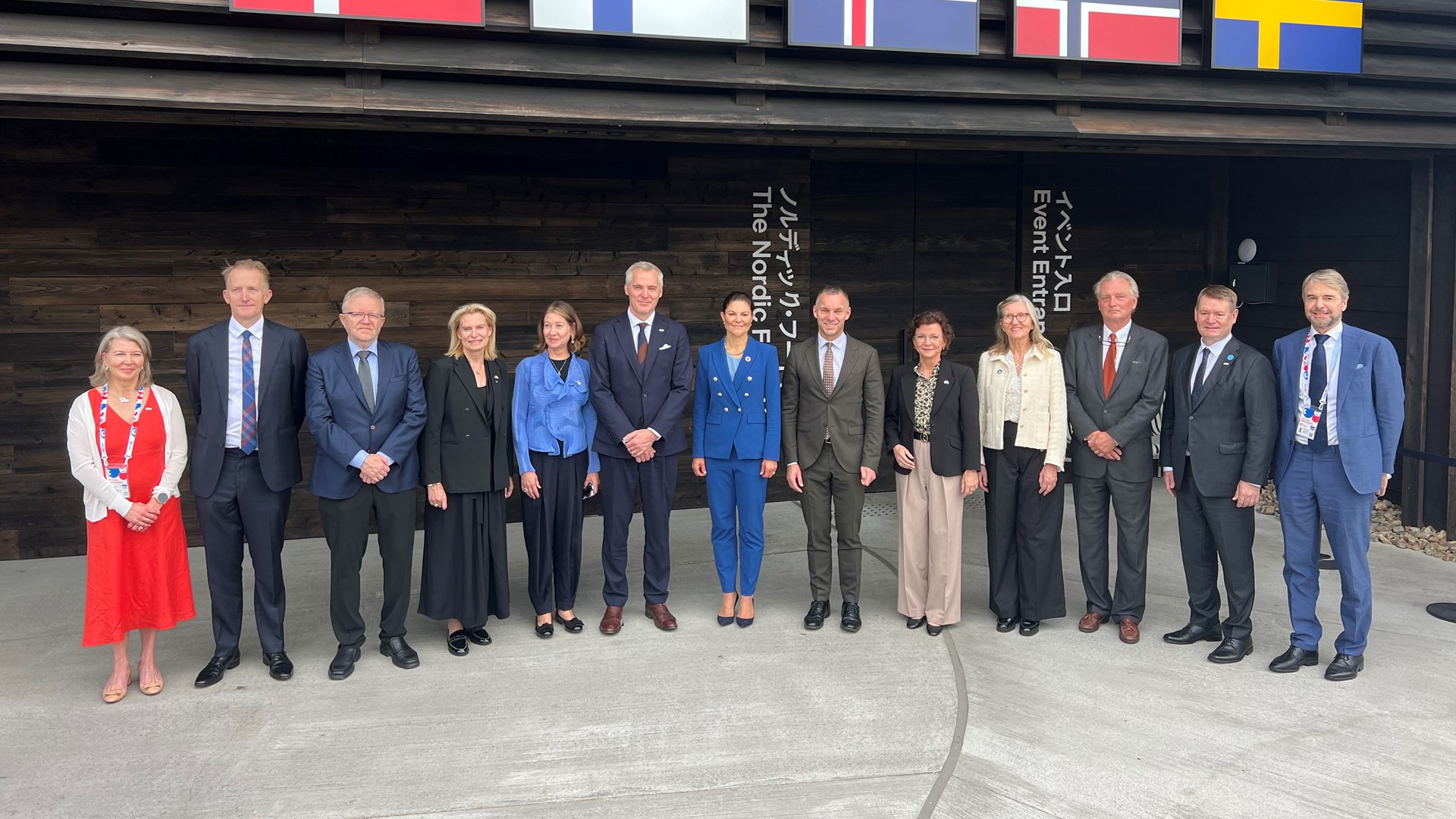Nordic research and technology in the Arctic in focus at Expo 2025

As the world’s eyes turned to the Arctic — and to opening speaker HRH The Crown Princess — during Arctic Day at Expo 2025 in Osaka, the Nordic countries showcased how research, innovation and cooperation can help address the challenges and opportunities brought by climate change and technological development.
Arctic Day was held on 11 October in the Nordic Pavilion at the Expo 2025 World Exhibition in Osaka, Japan. The event brought together royalty, ministers, researchers and business representatives from the Nordic countries and Japan to discuss developments in the Arctic and opportunities for international cooperation.
The Arctic is a region undergoing rapid change, with both climatic and geopolitical challenges. Karen Ellemann, Secretary General of the Nordic Council of Ministers, highlighted the region’s central role in Nordic cooperation and stressed the importance of international partnerships. Another key topic was digital infrastructure, where Minister for Civil Affairs Erik Slottner presented plans for fiber-optic submarine cables that will connect Europe and Asia via the Arctic Ocean.
Katarina Gårdfeldt, Director of the Swedish Polar Research Secretariat, participated in a panel discussion together with representatives from the Norwegian research institute NORCE and the Nordic Cryosphere Digital Twin project. The panel emphasized the need for long-term funding, international collaboration and access to high-quality measurement data from the Arctic.
– Thanks to research and long-term investments in research infrastructure, such as research icebreakers, we have delivered significant societal benefits by making data from the Arctic Ocean accessible. A clear example is seabed mapping, which is a crucial prerequisite for Polar Connect – the planned fiber-optic connection between Europe and Japan. Such an initiative would hardly have been possible without both the data that underpins the planning and the expertise Sweden has developed on how to collect additional data to implement the project,” says Katarina Gårdfeldt, Director of the Swedish Polar Research Secretariat.



